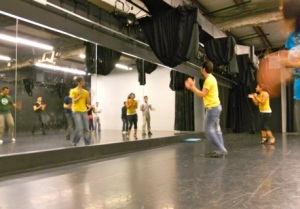Cancer-Fighting Cells Get Boost from Viagra
Posted: November 30, 2011 | Author: annemariewritesat | Filed under: Stories | Tags: Boston University, Cancer, immune system, john hopkins university, research, viagra | Leave a commentSildenafil in Viagra can fight more than just erectile dysfunction.
Viagra may provide more than a wake-up to a man’s sex life — it may help the body’s immune system fight cancer, a new study involving mice suggests.
Scientists in Germany genetically engineered mice to develop melanoma, the deadliest form of skin cancer, and found that when these mice were given Viagra in their drinking water, they lived twice as long as untreated mice.
The drug works because it “wakes up” the immune system to fight cancer, said study researcher Viktor Umansky, an immunologist at the German Cancer Research Center, in Heidelberg.
Viagra and cancer
Researchers from John Hopkins University had discovered in 2006 that Viagra (which is drug manufacturer Pfizer’s brand name for sildenafil citrate) boosted the activity of T cells in mice with cancer. T cells are part of the immune system, and they fight tumors.
The new study showed how this may work. Most tumors release chemicals that inhibit T cells, but “sildenafil switches off these suppressor cells and wakes up the sleeping T cells,” Umansky said.
Umansky used mice that were altered to develop malignant melanoma, mimicking the way the cancer develops in people.
From laboratories to people
Dr. Adam Lerner, a professor of medicine and pathology at the Boston University School of Medicine, who was not involved with the study, agreed that the study showed mice “have a stronger immune system under the effects of sildenafil.”
Umansky said most current cancer treatments have the effect of tamping down the immune system, and Viagra might offset this effect. But years of further research would be needed before Viagra could become a cancer treatment, he said.
The study was published Oct. 11 in the journal Proceedings of the National Academy of Sciences.
Read the story online on MyHealthNewsDaily’s website
Voice of the Oppressed
Posted: November 22, 2011 | Author: annemariewritesat | Filed under: Blog | Tags: Marxism, opinion, socialism | Leave a comment
“The comrade in the black hat please”- These were the first words I heard when I entered the New England Marxism Conference on Saturday, November 12, 2011. Though I find it unsettling that I can use the terms ‘Marxism’ and 2011 in the same sentence, I found it more uncanny that the socialists decided to hold their conference in the Science Center of one of the top Ivy league colleges in the country, Harvard University.
The two day conference was broken into workshops, which discussed subjects like the working class and oppression, Black Liberation and Socialism, and objectives of Marxism. Though I have never felt marginalized as a non-white before, my curiosity forced me to check out the Black Liberation conference. As I settled down on the stairs of the auditorium, as all the seats were filled out, it tickled me to notice a handful of Asians, and a Rasta black guy with a big Afro.
“Capitalism forces to compete. It creates the potential to pitt working classes against each other, and forces racism, ethnic and gender divides”, yelled out Jonah Birch from the podium. Birch had taken the time out from his busy Occupy New York schedule to attend this conference in Boston. After he finished his energetic rant where he ripped apart Ron Paul, bank and mortgage companies and the media all with equal fervor, Birch open the floor to his comrades. One of the initial participants who spoke brought up the issues of foreclosures and stated that there had been 10 million foreclosures since 2008, and most were affecting homes of black and Latino people. Another lady brought the injustice against Troy Davis to the floor. For the next hour, people from all over New England, each representing an occupy movement, expressed dissatisfaction in almost every aspect of public structure. If it wasn’t the occupy movement that brought them together, it was their hatred for White people, antagonism towards “American Apartheid”, and amazing ability to find oppression hidden in every mundane social process.
Unable to contribute much to the discussion, I flipped over the reading material handed out to all participants of the conference. The last two pages had listings of various food and refreshment venues in the area. Starbucks and Dunkin headed the list.
Figuring that I had nothing in common with black oppression and slavery, I waltzed off to check out the conference on women’s oppression. At least this room had a significant number of women, most of whom sat holding hands and nuzzling each others hair. The speaker, a daunting tall white woman with a booming gospel voice had enamored her audience with speeches on sexual liberation, right wing politics, the church, the criminal justice system and what have you. I learnt new phrases that day, ‘Power Feminism’ being my favourite one. The term simply means that women in politics, or in high ranks of business and power are capitalists themselves. In this room, Michelle Bachmann and Hillary Clinton got their fair share of mud slinging.
“The comrade with the anti-NATO pins”, yelled the chair allowing the young man his turn to speak. He got up in his place, scratched around his bull ring and smoothed the crease of his plaid shirt, before he mumbled a few words of gratitude to the speaker.
As I got up to leave a pretty young comrade winked and waved a peace sign at me. I departed the conference and went Christmas shopping at Macy’s.
Written for an ‘Opinions and Editorials’ class at Boston University with Boston Globe Columnist, Adrian Walker.
Salsa Engineering
Posted: November 7, 2011 | Author: annemariewritesat | Filed under: Blog, Stories | Tags: boston dynamics, latin dance lessons, opinion, quadruped robots, Salsa | Leave a commentIt was an unexpectedly cold and snowy October evening in Boston and I was pleasantly surprised that Matei Livianu didn’t call a rain check on our appointment. As I approached our meeting venue, a restaurant in Cambridge, I saw him standing outside wearing his characteristic pin-striped bowling hat and an irritated expression on his face. He arrested his annoyance and courteously smiled when he caught my eye. “They shut an hour early,” he explained pointing to the restaurant, “I hate bad service”. As we crossed the street to find another venue, an oncoming car made a rude turn and scraped my side as it recovered speed. Matei spun around and pranced over to the driver’s side. What passed between him and the driver was drowned out in the snow and noise from honking cars, though I do remember seeing a bird and hearing some French. A few minutes later we settled down in another restaurant. Matei took off his hat, apologized for his outburst and repeated that he hated bad service.
29-year-old Matei Livianu has made it his life’s goal to deliver good service to the people who approach his dance school in Cambridge, MA. Named after the founder, Salsa Matei offers a range of Latin dance lessons including Salsa, Bachata, Cha-cha and special choreographed pieces for performance events. Several dancers at the school are engineers, researchers, computer scientists or are studying to be one of those. That’s not much of a surprise since Salsa Matei is located in Central Square, six steps away from MIT and half a dozen from Harvard.
Matei came to Boston in 2006 after graduating with a Masters in electrical computer engineering from Georgia Tech. His move here was in response to a job offer as a controls engineer from Boston Dynamics, a company that specializes in making biped and quadruped robots that can walk through mud pits or on steep staircases where wheeled robots would fail “It’s all about balance and movement,” said Matei, a statement that could have just as easily described salsa. He was cut short by a phone call from his wife, Hirlley, a certified aircraft mechanic working with the MBTA and a teacher at Salsa Matei. The two met in Boston while dancing at a local Latin dance club.
Matei was born in Montreal into a family of immigrant Romanian engineers. His parents moved to Los Angeles when he was five and enrolled him and his brother into piano and tap dancing lessons. Matei remembers hating tap dancing as a child. “I was a nerd surrounded by ten girls,” he chuckled as he nudged a plate of oysters towards me. In high school he turned down an offer to join a swing dance club, fearing that he was nerdy enough and didn’t need more. Balance, however, seemed to come naturally to Matei as he took to skiing and ice skating like hot knife to butter. His brother grew up to be the sporty one in the family.
Matei was introduced to salsa during his undergrad at Harvey Mudd Technical School when he finally decided to overcome his shyness and joined the ballroom dance club. In the following few years, he speedily progressed to an advanced performer and then a teacher. Engineering helped him dance. He could not have understood balance and weight if he wasn’t an engineer. Dancing, in turn, provided stress relief from studying. Politics between dance directors and judges prevented Matei from entering professional dancing and he stuck to learning and dancing in school. He never had much luck at dance clubs though as “no Latin girl wanted to dance with a scrawny white guy.” Matei’s old-school Romanian mother once told him that if a girl said no, she really meant yes. Those words came back to him in dance clubs as he would shamelessly ask the same girl over and over again till she would give in. Once young Matei had the chance to show off his moves, he never found it hard to find partners to dance the night away.
Matei started dance schools wherever he went, including one at Georgia Tech. He first paying students, however, were a young married couple in Georgia who were struggling to find ways to spend quality time together. One evening Matei had dragged them, along with a few others, onto a makeshift dance floor in a local restaurant and taught them some salsa steps- something he often did when he went out. By the end of the evening the couple begged him to give them formal lessons as they needed to find an activity together to fuel their marriage. Charging a humble fee that paid his gas money, Matei found a new calling- to provide good service as a dance teacher. Today, his school in Cambridge has an average attendance of 90 students and four full time teachers. He responds to every email personally, teaches every dance move professionally and emphasizes his hatred for bad service passionately.
Written for an ‘Opinions and Editorials’ class at Boston University with Boston Globe Columnist, Adrian Walker.




